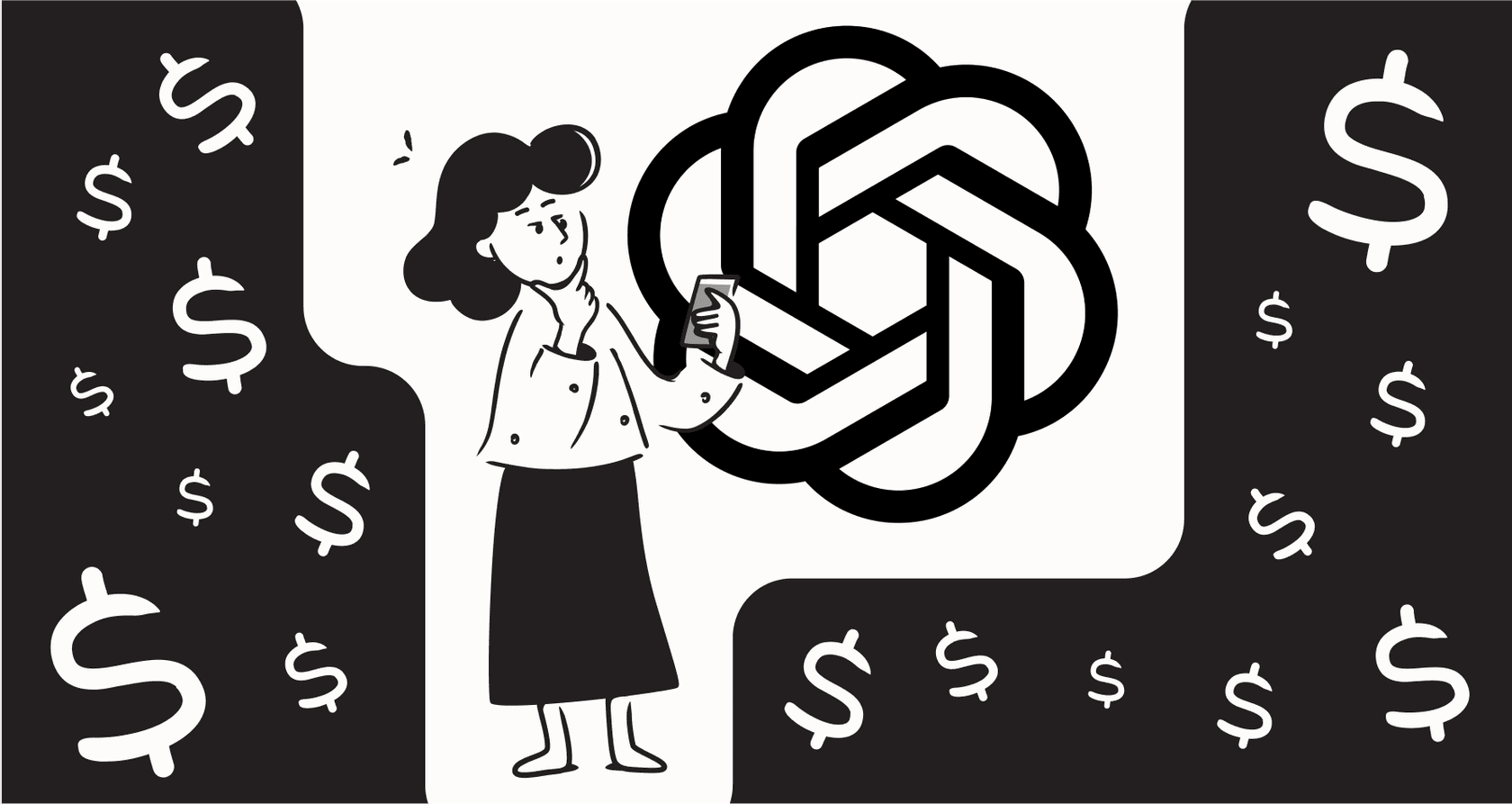
ChatGPT has quickly become the go-to tool for millions of people, helping with everything from writing tricky emails to debugging code. But once you start considering it for your business, the pricing can feel a bit like a maze. You've got free plans, monthly subscriptions, and usage-based API costs, and it's not always clear what you're getting for your money.
This guide is here to help you make sense of it all. We’ll walk through every ChatGPT pricing plan, explaining the features, costs, and what you need to watch out for. We'll cover options for individuals (Free, Plus, and Pro) and businesses (Team and Enterprise), plus the often confusing API costs. Most importantly, we'll look at whether a general-purpose tool like ChatGPT is really the most efficient or budget-friendly option for specific jobs, like customer support.
What is ChatGPT? A quick refresher
Before we get into the numbers, let's have a quick recap. ChatGPT is an AI chatbot from OpenAI. You give it a prompt, and it gives you a surprisingly human-like text response. Simple, right?
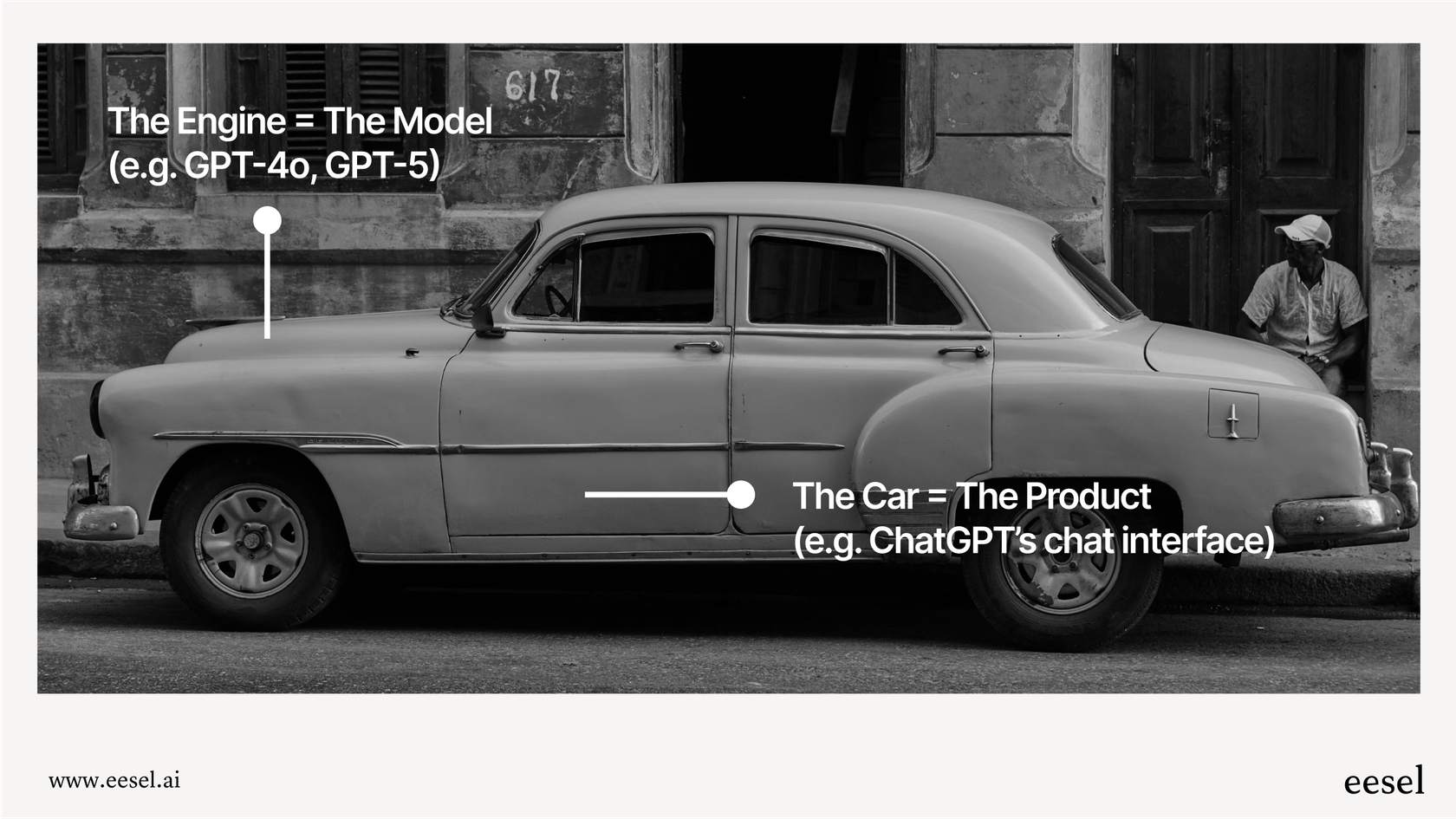
The part that trips people up is the difference between the ChatGPT product you chat with and the underlying AI models that power it, like GPT-4o and the upcoming GPT-5. These models are the engine, and different subscription plans give you different levels of access to them. The model you use determines the quality and speed of the answers. This is really the key to understanding the value of each pricing tier, you're not just paying for a chat window, you're paying for access to more powerful AI.
ChatGPT pricing for individuals: Free, plus, and pro
OpenAI has three main tiers for individuals, each designed for a different kind of user, from someone just dipping their toes in the water to a professional who relies on AI every day.

The free plan
-
Cost: $0/month.
-
Features: The free plan gives you a taste of OpenAI's best model, GPT-5, but with some pretty tight usage limits. You also get the ability to browse the web, use custom GPTs, and some limited access to tools for uploading files and analyzing data.
-
Best for: It’s a great starting point for students, casual users, or anyone who's just curious about what AI can do.
-
Limitations for business use: The biggest headache for any business is how unreliable it can be. You'll hit message caps on the better models, especially when everyone else is using it, and you'll notice slower response times. Then there’s the big one: privacy. By default, your conversations can be used to train OpenAI's models unless you dig into the settings and opt out, which is a dealbreaker if you're handling sensitive company or customer information.
The plus plan
-
Cost: $20/month.
-
Features: Plus gives you everything in the free plan but gets rid of many of the annoying restrictions. You get way more access to GPT-5 with much higher message limits, faster responses, and you get to skip the line during peak hours. It also unlocks more creative tools like the DALL-E 3 image generator, advanced voice modes, and the ChatGPT agent.
-
Best for: This plan is perfect for people who use ChatGPT daily, like freelancers, content creators, and developers who need help with brainstorming or coding.
-
Limitations for business use: While it’s a solid tool, it's a one-person show. There are no features for teamwork, no admin controls, and none of the security you'd need to roll it out to a team. Everyone has their own separate account, which makes trying to share work or maintain consistency a real pain.
The pro plan
-
Cost: $200/month.
-
Features: Pro is the top-of-the-line plan for individuals. It has everything in Plus but gives you unlimited access to GPT-5 and even more powerful "pro" models for really tough questions. You also get much higher limits on advanced tools like Sora for video generation and the deep research tool.
-
Best for: This plan is built for researchers, developers, and AI enthusiasts who are pushing the limits of what AI can do and need the absolute best performance.
-
Limitations for business use: The price tag is the most obvious hurdle. At $200 per person, it's a serious investment for a tool that still doesn't offer any team features or workflows built for a specific job. It's still a general assistant, not a specialized solution for sales, marketing, or support.
| Feature | Free | Plus | Pro |
|---|---|---|---|
| Cost | $0/month | $20/month | $200/month |
| Primary Model | GPT-5 (Limited) | GPT-5 (Extended Access) | GPT-5 (Unlimited) |
| Advanced Models | No | No | Yes (GPT-5 pro) |
| Team Collaboration | No | No | No |
| Data Privacy | Opt-out available | Opt-out available | Opt-out available |
| Best For | Casual Use | Power Users | Researchers & Developers |
This video provides a clear breakdown of the different ChatGPT tiers, explaining what each plan offers and who it is best suited for.
ChatGPT pricing for businesses: Team and enterprise
For companies that want to use AI across their teams, OpenAI offers the Team and Enterprise plans. These add some collaboration and security features, but you have to ask: do they actually solve the real-world problems of getting AI to work smoothly in a business process, like customer support?
The team plan
-
Cost: $25/user/month (if you pay annually) or $30/user/month (if you pay monthly).
-
Features: The Team plan builds on Plus by adding a shared workspace where you can build and share custom GPTs with your team. You get an admin console to manage users, higher message caps on GPT-5, and, importantly, your business data isn't used for training by default.
-
Limitations:
-
Workflow Disruption: Let's be honest, nobody wants to spend their day flipping between tabs. ChatGPT is a separate app, which means a support agent has to constantly jump between their help desk, like Zendesk or Intercom, and the ChatGPT window. This constant context-switching is a massive productivity killer.
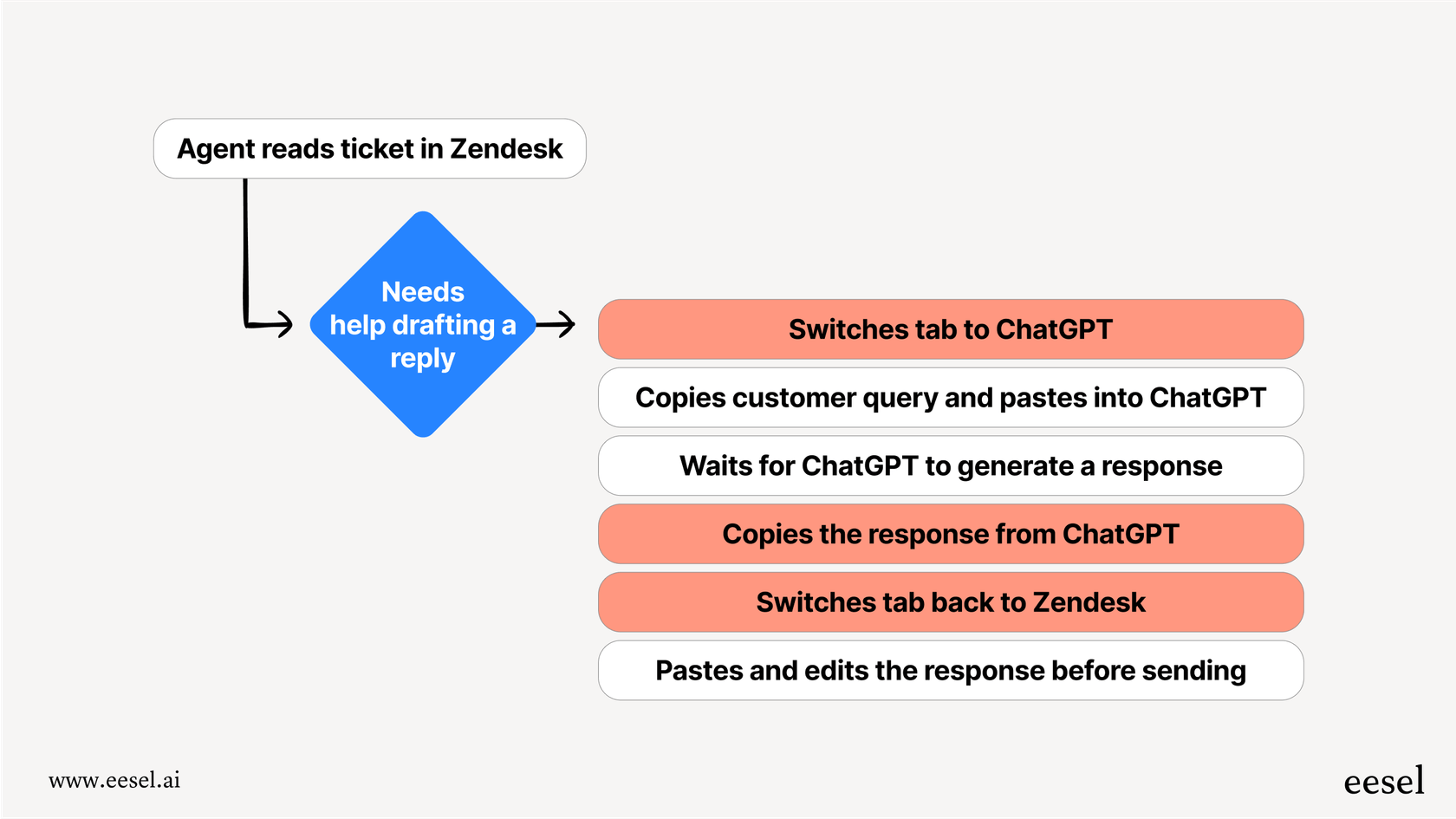
- Lack of Specialization: It's just not built for customer support. It can't do basic tasks like tagging tickets, sending a conversation to the right person, or checking a customer's order status in Shopify without a lot of complicated, custom development work.
- No Confident Rollout: You can build a custom GPT, but there's no way to safely test it on your real customer issues before you set it live. You’re basically flying blind, which is a huge risk when your customers' happiness is at stake.
The enterprise plan
-
Cost: Custom pricing, which means you have to talk to their sales team. Estimates usually put it around $60 per user per month, with a minimum number of users and an annual contract.
-
Features: Enterprise has everything in the Team plan but adds serious security and compliance (like SOC 2), unlimited high-speed access to GPT-5, the ability to process much larger documents, better admin controls, and a dedicated support contact.
-
Limitations: While it’s more secure and powerful, the Enterprise plan still has the same core issue as the Team plan. It’s a generalist tool that takes a lot of effort to fit into specialized workflows. For teams that just want something that works out of the box, the setup can feel like a huge project instead of a simple add-on to their existing tools.
The better alternative for support teams: Purpose-built AI
For jobs like customer service or IT support, a specialized tool almost always gives you a better and faster return than a general one. While ChatGPT is an amazing piece of technology, it’s not designed for the specific, action-based tasks that support teams deal with all day long.
This is where a platform like eesel AI makes a lot more sense. It's built specifically for support and IT teams and plugs right into the help desk and communication tools you're already using.
Here’s why it’s a better fit:
-
Go live in minutes: You can connect eesel AI to your help desk with a single click. There's no long setup process or need to pull in a developer. You can get it running all by yourself, today.
-
Seamless Integration: eesel AI works inside the tools you already know, like Zendesk, Freshdesk, and Slack. Your agents never have to leave their workspace to get help from AI, which means no more context-switching.
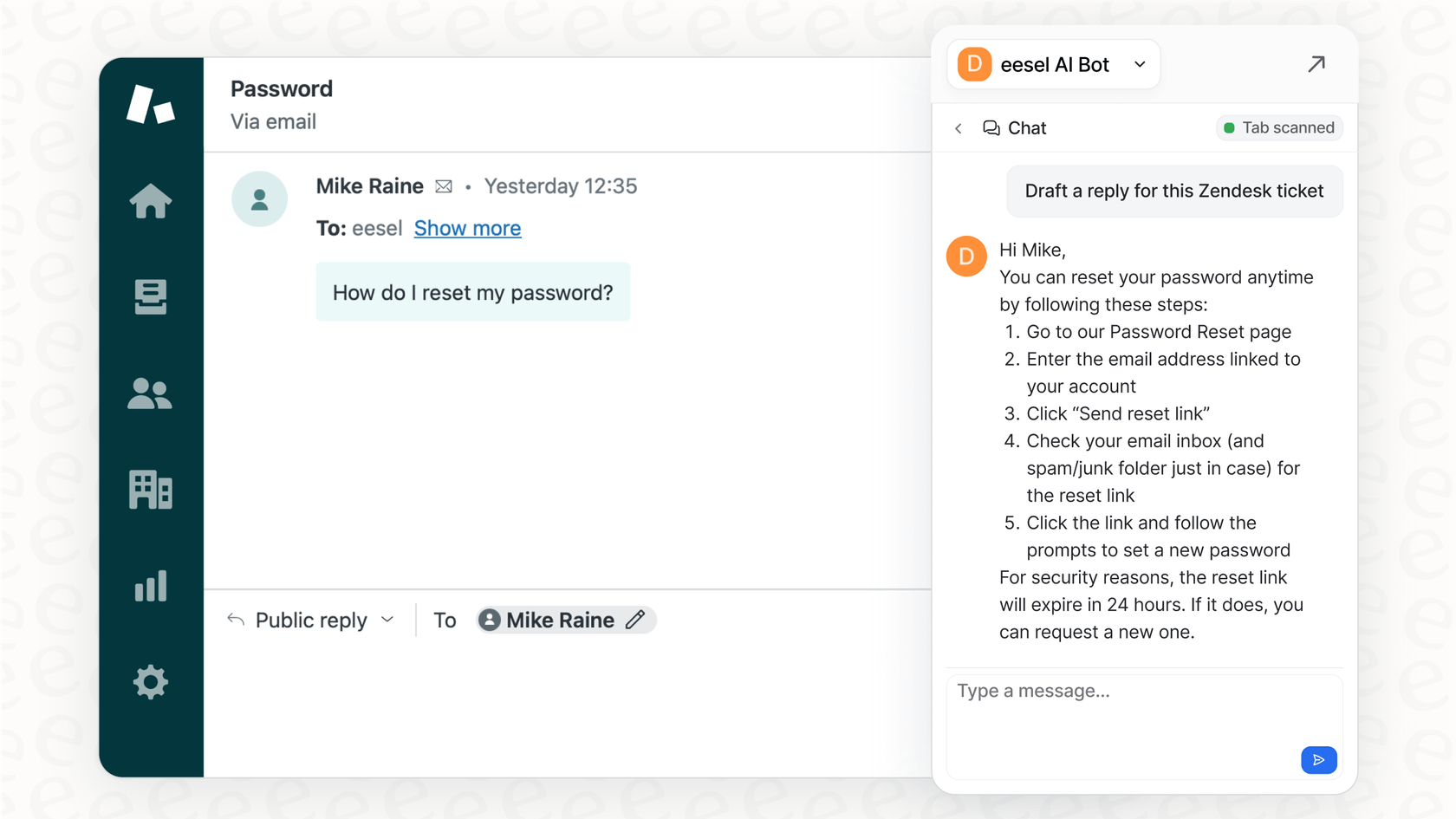
-
Total Control: You get to decide exactly which tickets the AI handles. You can also customize what it does, like tagging, escalating, or looking up information, all through a simple interface that doesn't require any code.
-
Test with Confidence: The powerful simulation mode lets you see exactly how eesel AI would have handled thousands of your past tickets before you even turn it on. You get a clear picture of your automation rate and can tweak the AI for better performance without any risk.
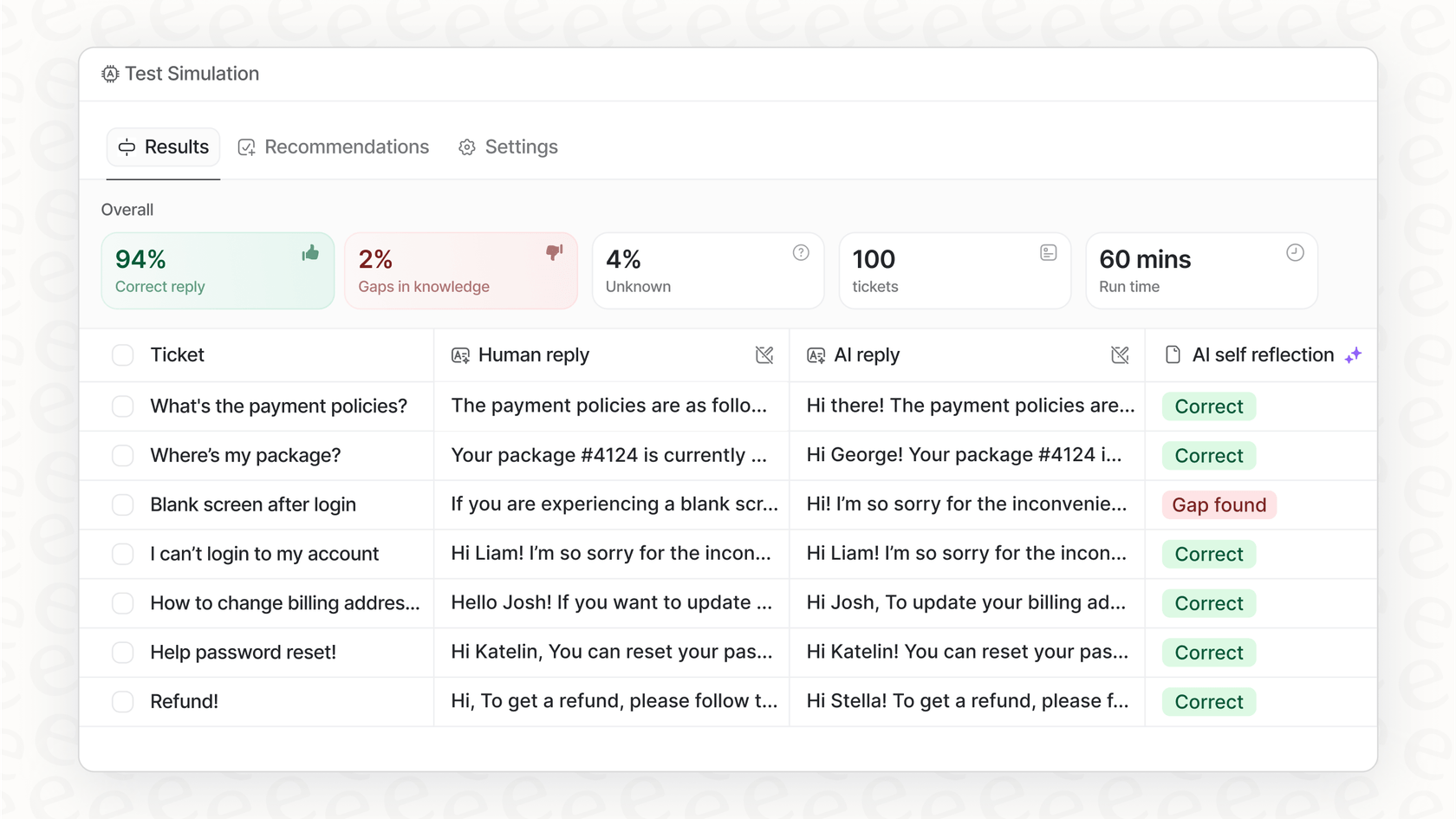
The hidden costs: Understanding the API
Beyond the monthly plans, businesses can use the OpenAI API to build their own custom AI tools. This route gives you the most flexibility, but it comes with a complex, usage-based pricing model that can lead to some surprisingly high and unpredictable bills.
How token-based pricing works
When you use the API, you pay for "tokens." Think of a token as a piece of a word; about 1,000 tokens equal roughly 750 words.
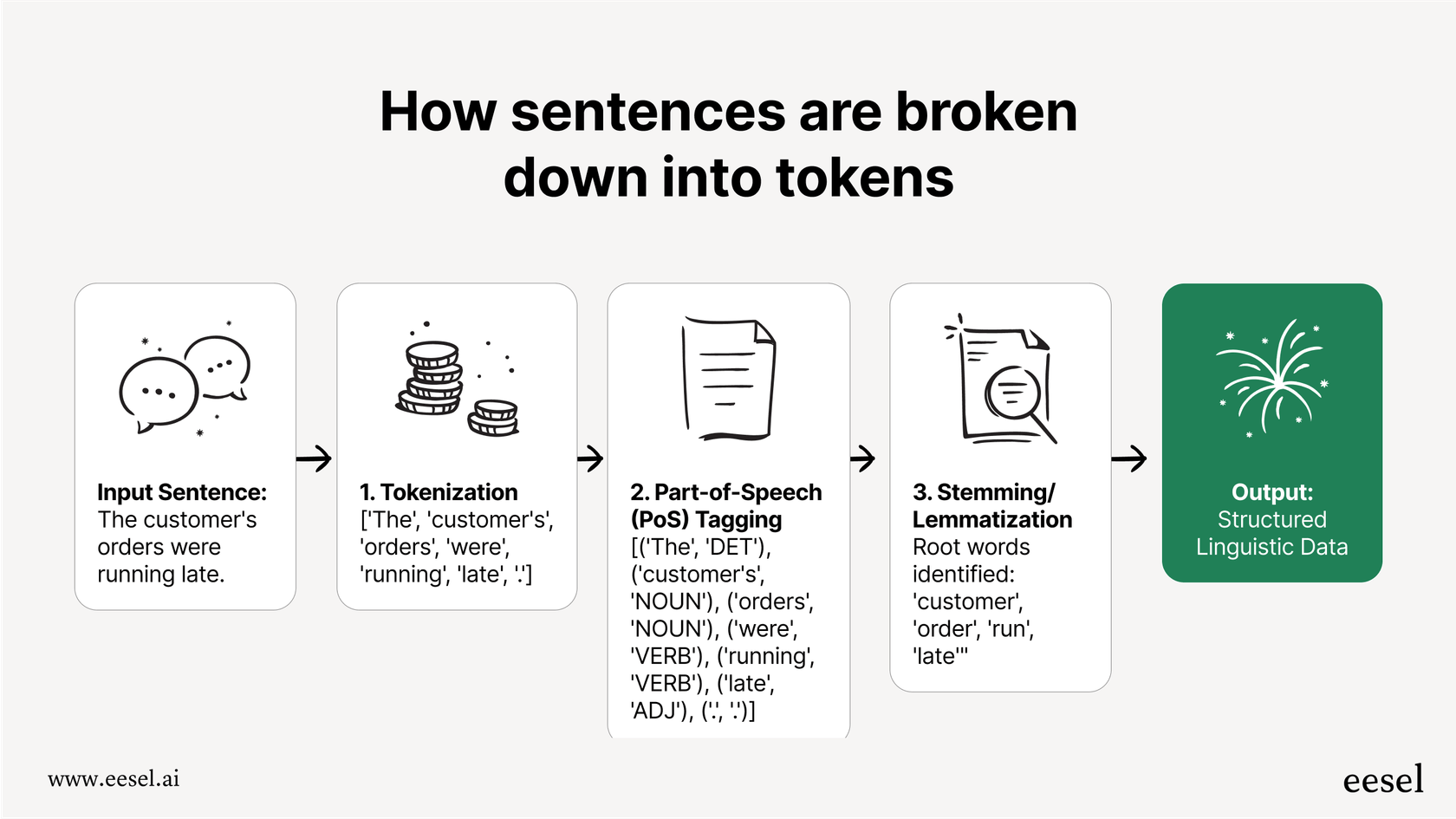
Here's the catch: you pay for both the input tokens (the prompt you send) and the output tokens (the AI's reply). This means a long, detailed customer email that gets a long, detailed AI response will cost you a lot more than a short, simple question. Different models also have different prices; the more powerful the model, the more you pay per token.
Why predictable costs matter
The biggest problem with API pricing is that you never know what your bill will be. Imagine a bug in your product leads to a huge spike in support tickets. With a token-based model, your AI bill for that month could go through the roof, and you wouldn't know until it was too late. This makes it really hard to set a budget for AI or figure out if it's even saving you money.
This video breaks down how OpenAI's token-based pricing works for the API and how costs can add up.
Platforms like eesel AI avoid this with clear, predictable pricing. Our plans are based on a fixed number of AI interactions per month, with no extra fees per resolution. Your costs stay the same, so you'll never get a nasty surprise on your bill after a busy month.
Choosing the right ChatGPT pricing plan for your needs
ChatGPT has a lot of different pricing plans, and the best one for you really depends on what you need it for. The Free, Plus, and Pro plans are great for individuals, but they just don't have the collaboration or security features that businesses need. The Team and Enterprise plans start to fix those issues but are still general tools that can be clunky to fit into specialized jobs.
For roles like customer support, a purpose-built platform is faster, easier to integrate, and, in the long run, more cost-effective. A specialized tool is designed from day one to solve the exact problems your team runs into every day.
eesel AI is the ideal choice for support teams who want to use AI without the headaches, risks, and hidden costs that come with trying to make a generic tool fit. It slots into your existing workflow, learns from your business, and gives you the control you need to automate with confidence.
Ready to see how a specialized AI solution can transform your support workflows? Start your free eesel AI trial today and get up and running in minutes.
Frequently asked questions
For individuals, OpenAI offers a Free plan with limited access to GPT-5, a Plus plan at $20/month with extended access and faster responses, and a Pro plan at $200/month for unlimited access to advanced models. Each tier provides increasing features and performance.
Team plans cost $25-$30/user/month, offering a shared workspace, higher message caps, and data privacy by default. The Enterprise plan has custom pricing, adding enhanced security, unlimited high-speed access, and dedicated support for large organizations.
Businesses often face workflow disruptions as ChatGPT is a separate application, requiring constant context-switching. It also lacks specialization for tasks like tagging support tickets or integrating with existing CRM tools without significant custom development.
The API's token-based system charges for both input (your prompt) and output (AI's response) tokens. Approximately 1,000 tokens equal 750 words, and prices vary depending on the specific AI model used, with more powerful models costing more per token.
The token-based API pricing is unpredictable because costs fluctuate directly with usage volume. A sudden increase in demand or longer interactions can lead to unexpectedly high bills, making it challenging for businesses to budget accurately.
With the Free and Plus individual plans, your conversations can be used for model training unless you manually opt out, which is a concern for sensitive business data. Team and Enterprise plans, however, explicitly state that your business data is not used for training by default.
Yes, for specialized functions like customer support, purpose-built AI platforms like eesel AI often prove more cost-effective. They integrate directly into existing help desks, offer predictable pricing, and are designed for specific tasks without extensive custom development.
Share this post

Article by
Stevia Putri
Stevia Putri is a marketing generalist at eesel AI, where she helps turn powerful AI tools into stories that resonate. She’s driven by curiosity, clarity, and the human side of technology.






